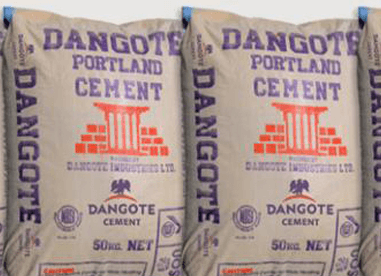
… says collaboration, not coercion, is way forward
By Ebenezer Chike Adjei NJOKU
Amid heated disputes over the newly proposed price control framework, the Chamber of Cement Manufacturers, Ghana (COCMAG) is calling for constructive dialogue and collaboration with government.
The cement industry is urging a reconsideration of what it describes as the ‘heavy-handed’ approach embodied in the Ghana Standards Authority (Pricing of Cement) Regulations, 2024 (L.I.) proposed by trade minister K.T. Hammond.
“COCMAG urges government to reconsider this heavy-handed approach and engage in constructive dialogue with the industry. Transparency in cost structure, a focus on long-term solutions like promoting local sourcing of raw materials and open communication are key elements for ensuring a sustainable and affordable cement supply for Ghana,” it said in a statement.
COCMAG’s appeal comes as the sector grapples with implications of the regulations, which grant a government committee at the Ghana Standards Authority (GSA) power to reject a cement producer’s reported price without explanation or appeal. Additionally, the regulations prohibit sales of cement without committee-approved pricing, with non-compliance potentially leading to licence suspension.
High taxes and levies
The industry’s concerns are rooted in a complex set of economic and regulatory challenges. Currently, taxes, levies, fees and charges from various government agencies account for an estimated 30 percent of cement’s consumer price. Imported clinker, a crucial component in cement production, is subject to no fewer than 22 different taxes and fees before even reaching production plants.
While acknowledging the country’s need for revenue, the industry stressed the importance of transparency in any efforts to reduce consumer costs.
Economic issues, cedi depreciation
The wider macroeconomic environment has further complicated matters for cement producers. Over the past two years, the cedi has depreciated sharply – doubling from GH¢7.14 to GH¢14.54 against the U.S. dollar. This devaluation has had a severe impact on production costs as 77 percent of inputs, including clinker and gypsum, are directly priced in dollars.
Despite these pressures, the cement industry argues that it has shown remarkable restraint in pricing. Retail cement prices have increased by 48 percent, significantly lagging behind the 103.7 percent rise in the exchange rate. In dollar terms, the price for a bag of cement has decreased by 27 percent over the last two years: from US$8.40 to US$6.12
Ghana among lowest cement prices
Despite these challenges, Ghana’s cement prices remain among the lowest in West Africa, approximately five percent below that of neighbouring Togo and 10 percent below Benin, with the sector absorbing much of the cost increases due to depreciation of the cedi.
The regulations, particularly sections 3(4), 3(5), and 3(6), are at the controversy’s centre. They empower a committee of six scientists at the GSA – led by Director-General Prof. Alex Dodoo, a pharmacist – to control cement pricing.
While their expertise in quality standards is unquestioned, COCMAG questions their capability in understanding the intricate market dynamics crucial for fair pricing of a complex commodity like cement. “Can they effectively balance production costs, globally- and locally-traded inputs, and the long-term health of Ghana’s cement industry better than the free market?” COCMAG quizzed as it stressed the need for a nuanced approach to pricing that considers various economic factors.
Lack of consultation
COCMAG also underscored lack of meaningful consultation in drafting the regulations. The industry stakeholders said they were summoned to a meeting with K.T. Hammond via a last-minute WhatsApp message on the evening of Sunday, June 30, 2024 for a meeting the following morning – with no agenda provided.
Upon arrival they were surprised to find media present, raising concerns about transparency and potential media misrepresentation. “The CEOs were then informed that the minister was unavailable to meet them,” COCMAG claimed.
COCMAG argued that the minister’s actions are not in the best interests of Ghanaians, warning of several potential negative outcomes. The Chamber stated that if the government-imposed price does not cover production costs, manufacturers may be forced to reduce production – thus hindering construction projects.
Additionally, reduced production could lead to job losses within the cement industry and related sectors. Also, without the ability to determine a fair market price, investors are less likely to invest in expanding production capacity; potentially leading to future shortages.
COCMAG is not alone in its opposition to the L.I. Several professional bodies, including the Ghana Chamber of Construction Industry, Ghana Real Estate Developers Association (GREDA), Importers and Exporters Association of Ghana and the consumer protection organisation CUTS International, have also expressed concerns about the proposed regulations’ impact on the industry and consumers.
COCMAG continues asking government to engage in collaborative discussions to find a balanced solution. “Transparency in cost structure, a focus on long-term solutions like promoting local sourcing of raw materials and open communication are key elements for ensuring a sustainable and affordable cement supply for Ghana,” it reiterated.
The post Cement price control: industry calls for dialogue appeared first on The Business & Financial Times.
Read Full Story



















Facebook
Twitter
Pinterest
Instagram
Google+
YouTube
LinkedIn
RSS